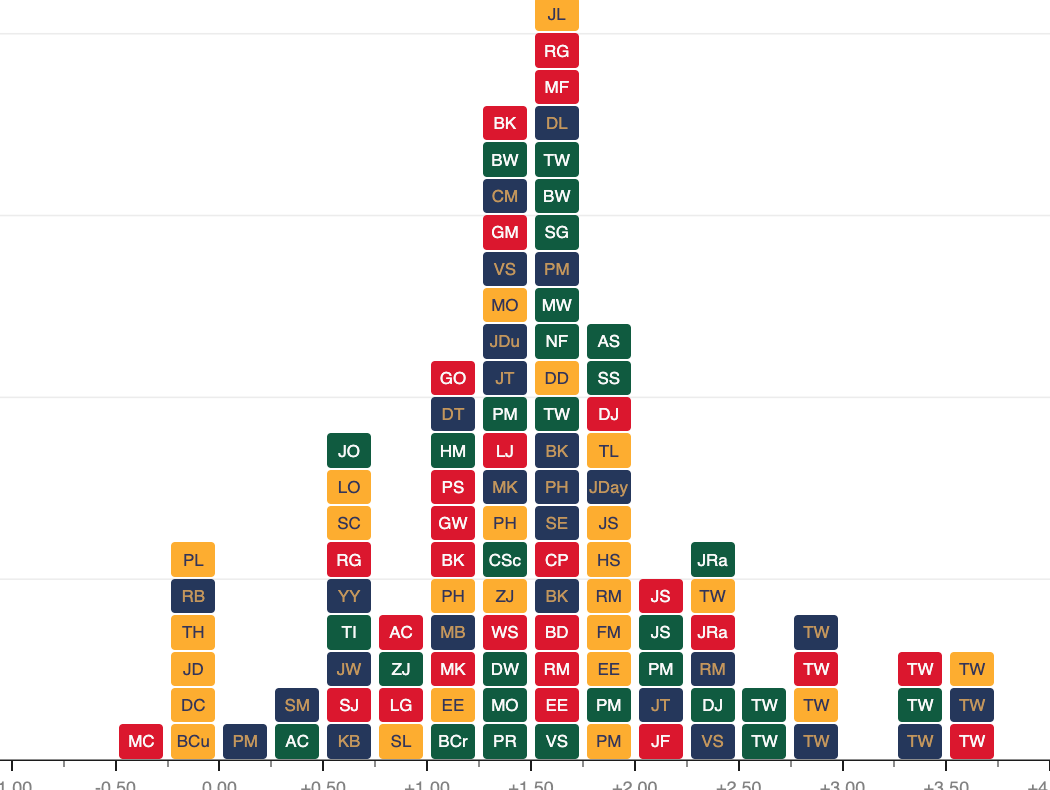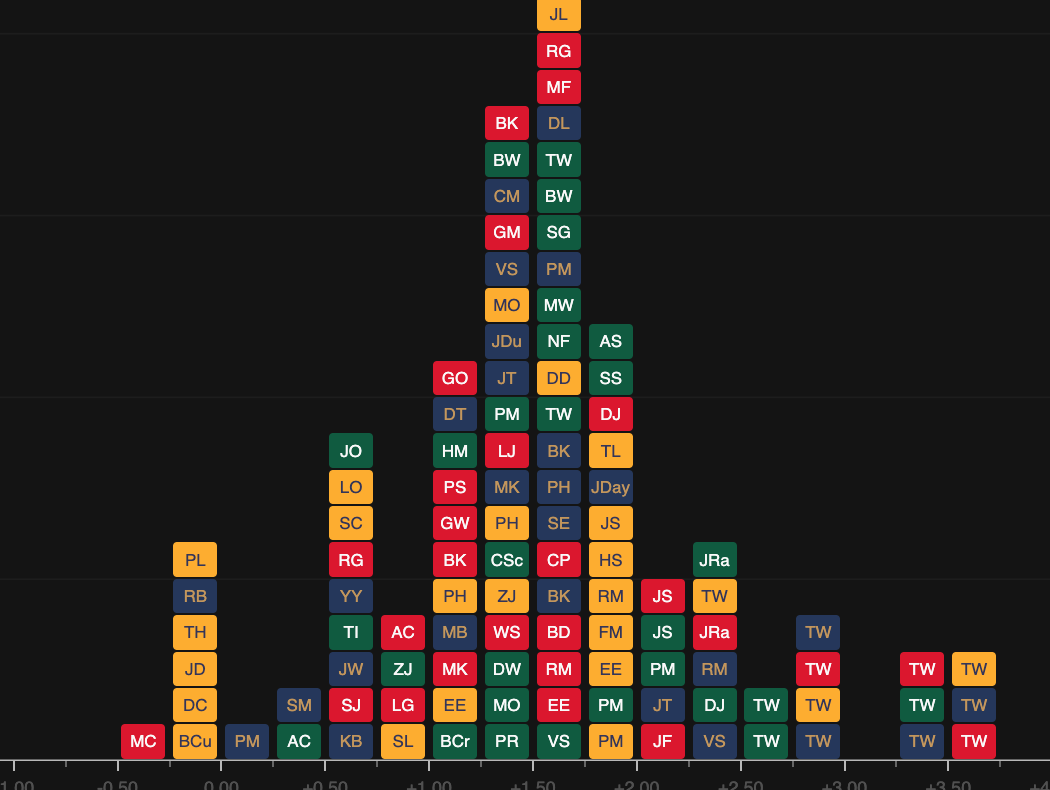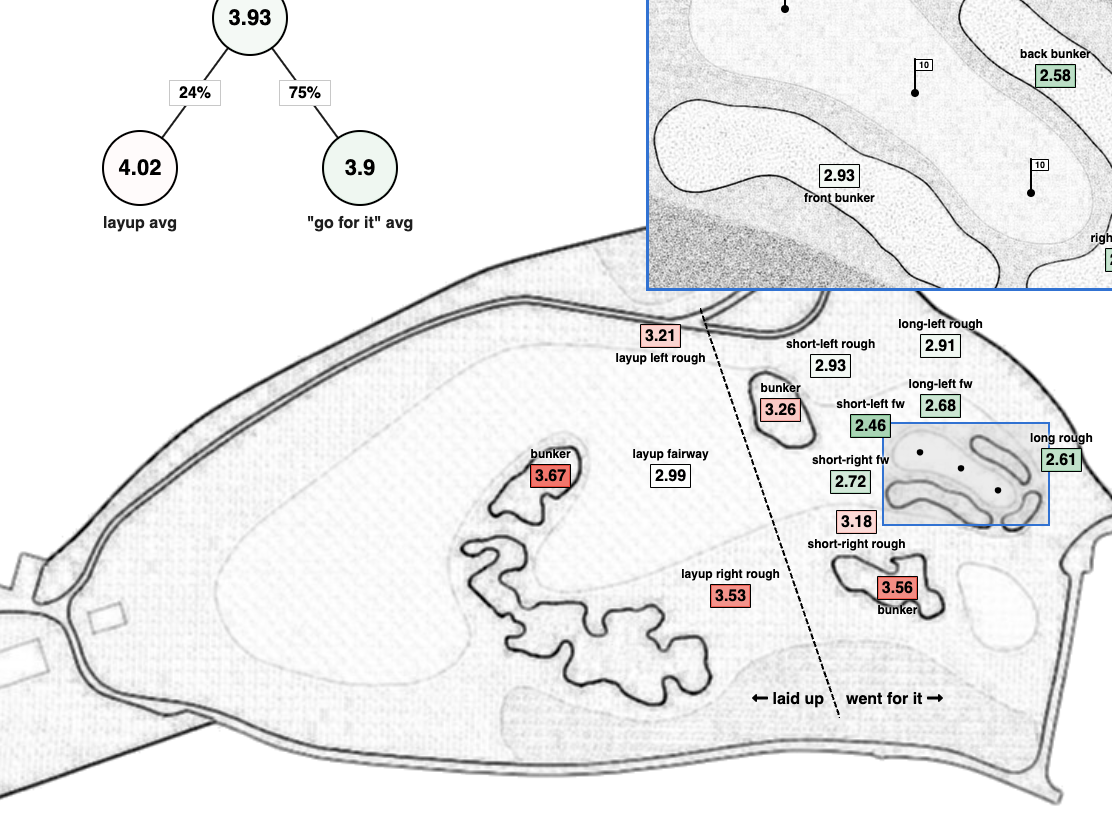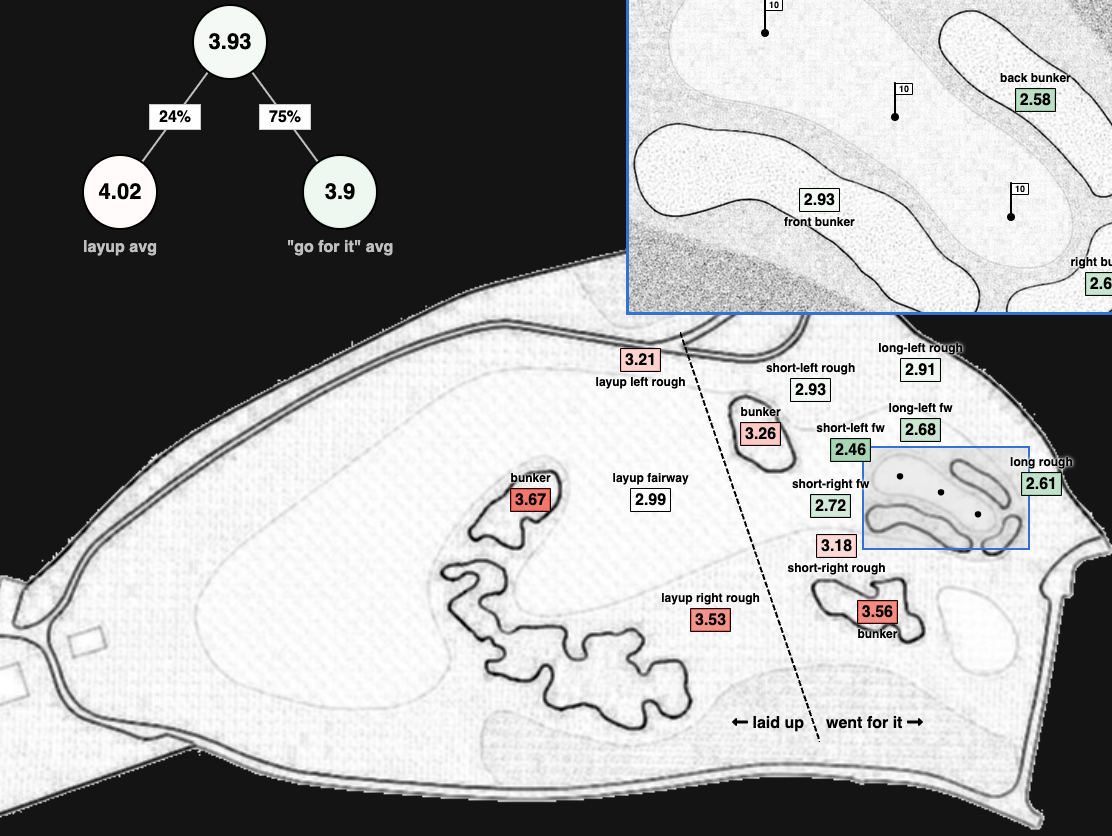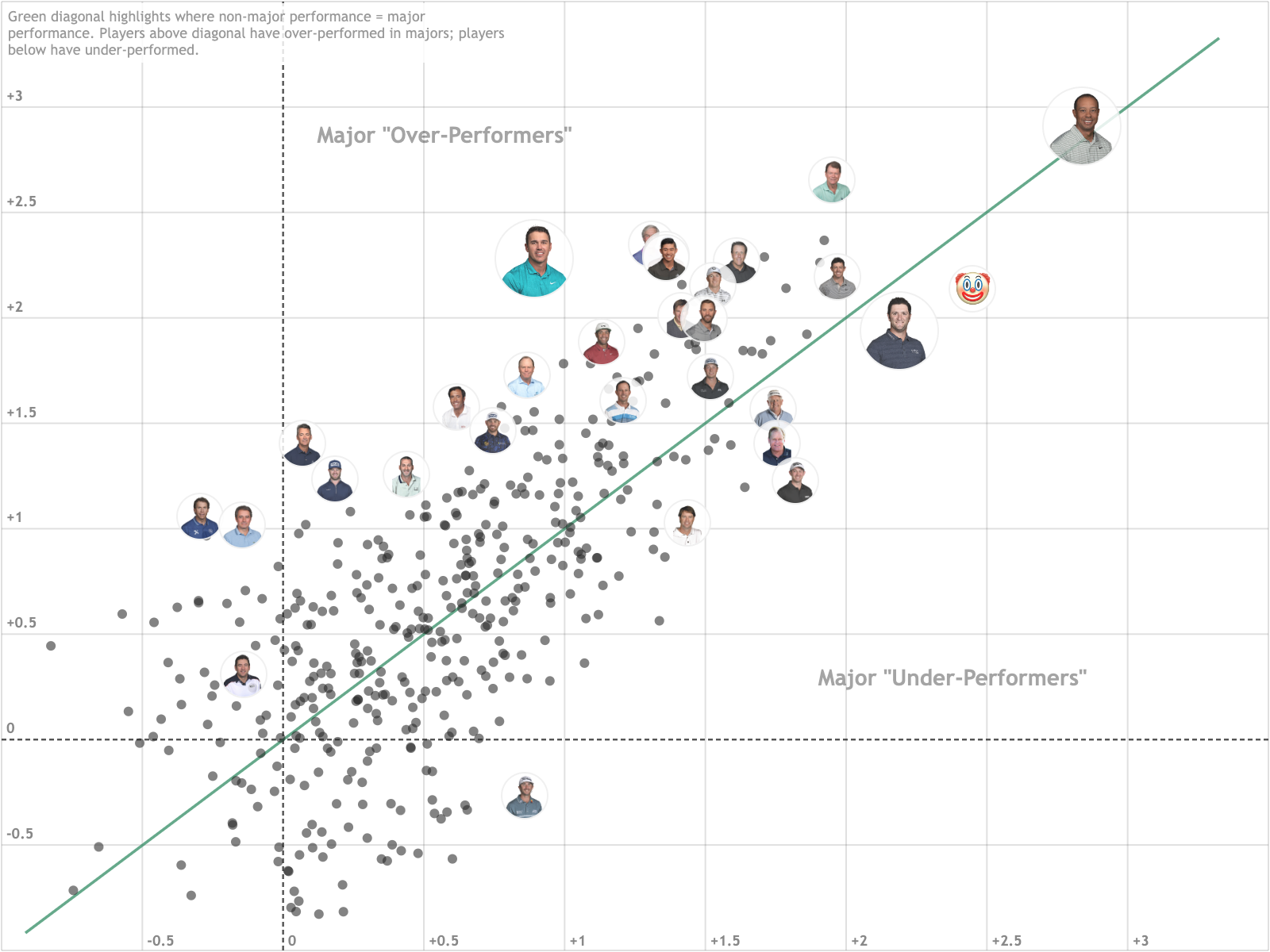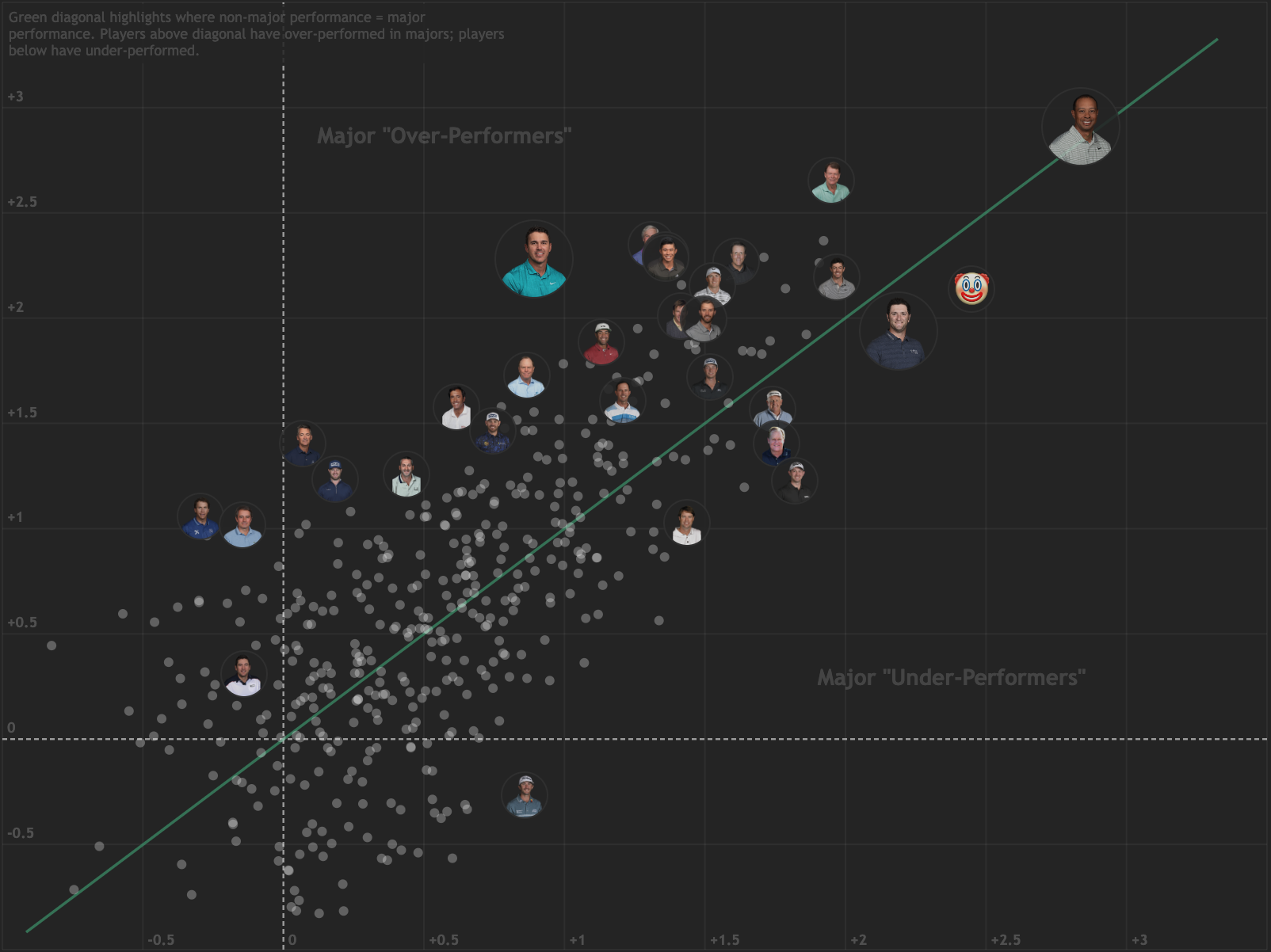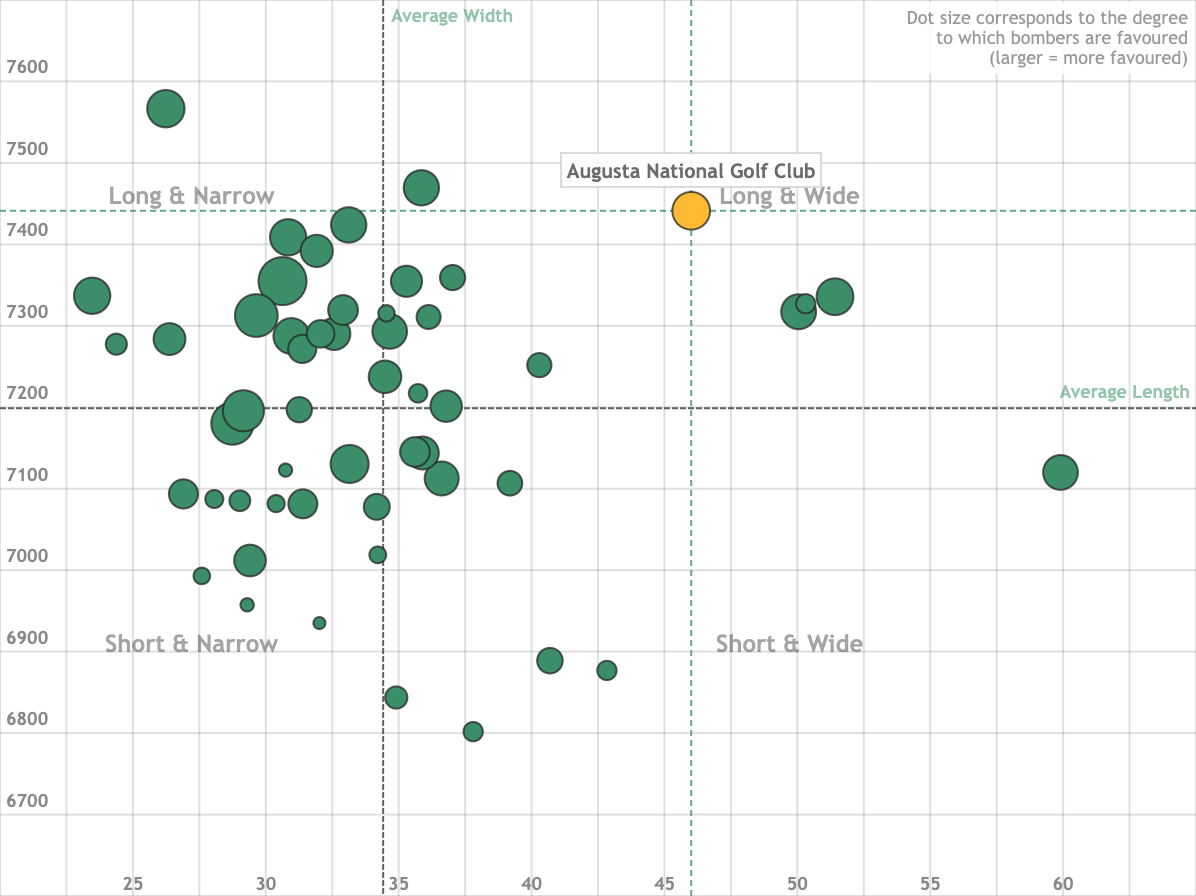
 I.T.N. No. 6
I.T.N. No. 6PUBLISHED June 10, 2019
Inside The Numbers ...
is a brief numerical summary of the current happenings in the world golf, published every Monday — hopefully.
+3.3 STROKES-GAINED BASELINE
This week major championship golf returns to Pebble Beach, site of
Tiger Woods' historic win at the 2000 U.S. Open. Tiger managed to win by a few strokes
that year — 15 to be exact.
According to our model,
that performance was worth about 7.5 strokes per round better than what you would
expect from an average PGA Tour field that season.
Throughout the 2000 season, Tiger averaged a mind-boggling 4.2 adjusted strokes-gained per round.
Therefore, he only performed 3.3 strokes better than his year-long baseline
en route to that historic U.S. Open victory. To put this into perspective,
3-4 strokes per round over the course of a 4-round tournament
is the type of overperformance it takes for
an average PGA Tour professional to notch a victory.
In other words, relative to his year-2000 baseline,
Tiger’s performance at the U.S. Open wasn’t that much of an outlier. Scary stuff.
49 YEARS OLD
Jim Furyk has been doing his best to defy the
aging curve in
golf: at 49 years of age,
Furyk is averaging +1.35 adjusted strokes-gained so far in 2019. Here is how our
career projection
system (after the 2018 PGA Tour season) predicted Furyk’s career from ages 49-53:
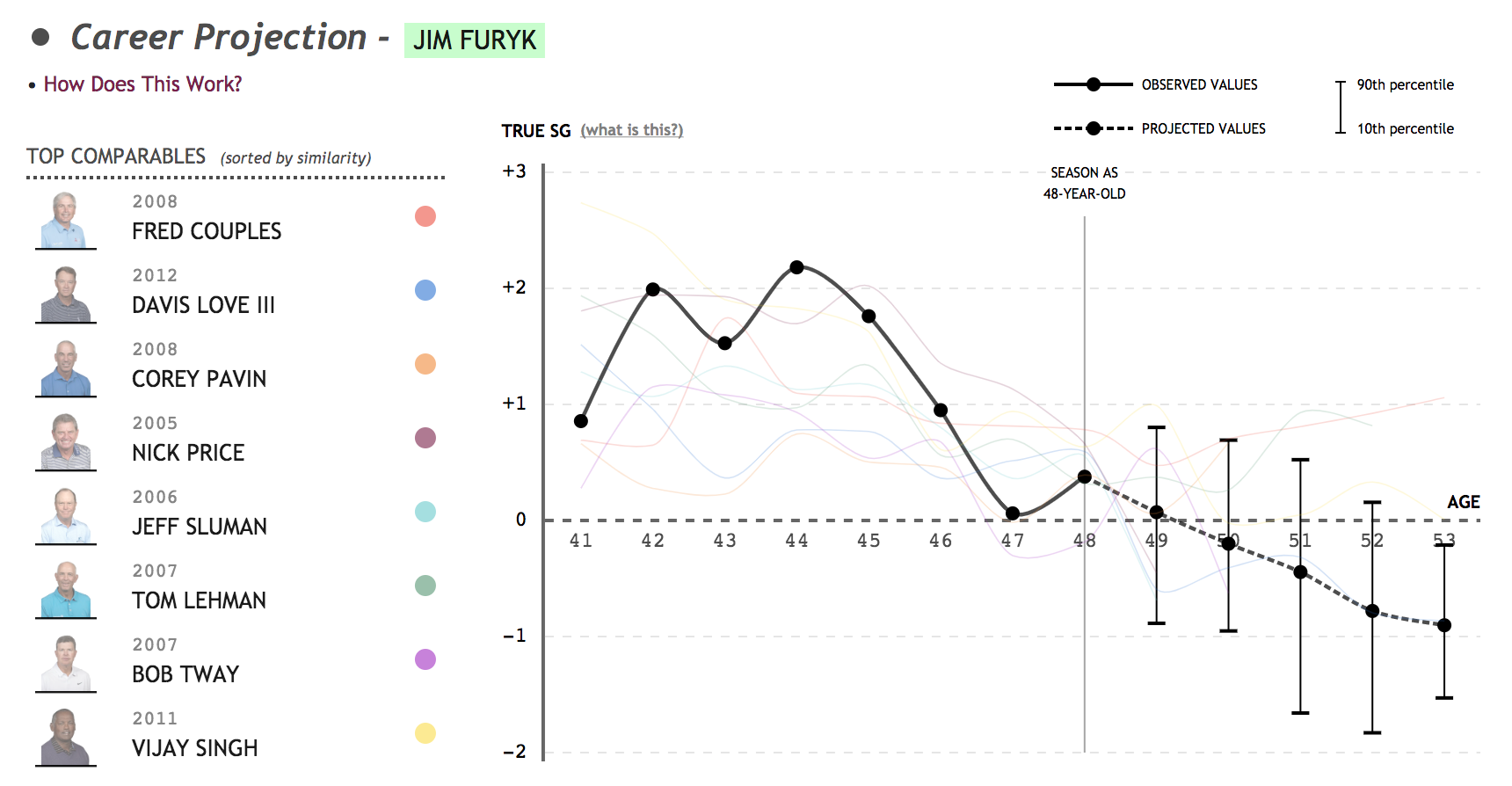 Alongside Furyk’s projection (the faint lines) are the actual performance
of the most similar 48-year olds in our database from ages 49-53.
It is easy to forget just how much golfers’ careers tend to decline
after they reach their early forties.
Even Davis Love III, a PGA Tour winner at age 51,
has seen a fairly steep decline in his performance post-50.
Alongside Furyk’s projection (the faint lines) are the actual performance
of the most similar 48-year olds in our database from ages 49-53.
It is easy to forget just how much golfers’ careers tend to decline
after they reach their early forties.
Even Davis Love III, a PGA Tour winner at age 51,
has seen a fairly steep decline in his performance post-50.

100% WIN PROBABILITY
How dominant was Rory McIlroy’s Sunday performance at the RBC Canadian Open?
Our live predictive model
gave Rory a 100% chance of winning with 5 holes remaining in the final round.
At 21-under-par and holding a 7-shot cushion, this conclusion seemed justified.
17 MAJOR CHAMPIONSHIPS
It’s hard to believe that Rory McIlroy’s last major victory
came all the way back at the 2014 PGA Championship. At the time,
having also won the Open Championship a few weeks prior, it seemed
laughable to think McIlroy’s major tally would fail to
grow in his next 4 seasons. Alas, golf is a fickle sport.
In the 17 majors Rory has played since his PGA triumph,
his performances have garnered just 0.17 expected wins.
Recall that expected wins tell us how likely it is for
a given strokes-gained performance to result in a win.
McIlroy’s best major performance since 2014 came at the
2015 Masters, where he had an adjusted strokes-gained of
+3.8 per round — good enough for just 0.08 expected wins.
7 YEARS
With the U.S. Open looming, Phil Mickelson is struggling with the flatstick.
Over his last 50 rounds, Lefty is
losing an average of 0.16 strokes per round on the greens — this just
one year removed from a 50-round stretch which
saw Mickelson gaining over 1 stroke per round.
Although Phil is often characterized as an inconsistent putter,
the last time his 50-round moving average dropped below
zero was 7 years ago! It’s a remarkable run of consistency
in a statistical category prone to variability.
Phil’s ball striking statistics for the 2019 season
are comparable
to recent years, so perhaps a good week with
the putter can produce that elusive U.S. Open title.
I.T.N. ARCHIVE
RECOMMENDED BLOGS
Recent Blog Posts
Model Talk Blog
Does our model overvalue leaders?

 Data Visualization Blog
Data Visualization Blog
Skill Distribution of Major Champions
